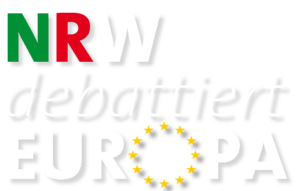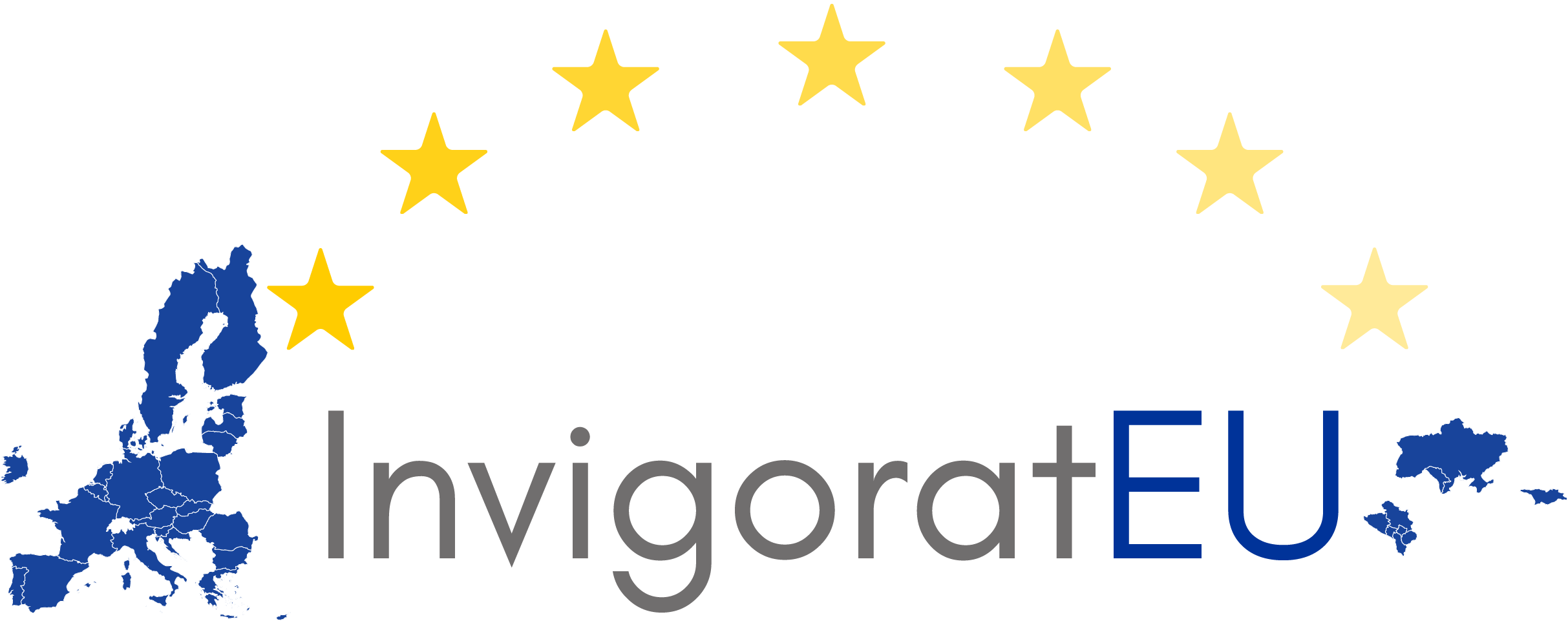Shortly before the European elections, Year 10 pupils at the Maria-Wächtler-Gymnasium in Essen had the opportunity to learn more about the close connection between political participation and Europe and thus receive a final input for their decision to vote in the European elections on 9 June. For the first time in Germany, young people aged 16 and over were also able to cast their vote. The event, part of the ‘Politics goes to schools’ project organised by the NRW School of Governance and the Welker Foundation, was led by Ruth Berkowitz and Ana Alba Schmidt, both research assistants at the University of Duisburg-Essen.
The impulse began with the presentation of the basic idea: to mobilise young people for the European elections and to focus on their political participation. The lecturers explained the importance and unique selling points of supranationality, as well as the diversity that is already evident in the electoral system. Furthermore, based on what the young people associate with Europe and participation, they discussed how each individual can contribute to European democracy. It was also explained that the creation of opportunities for participation at European level is an extremely relevant topic that has been discussed since the creation of the European Union. The relevance of the EU for the everyday lives of young people was illustrated using concrete examples such as data roaming, the ban on single-use plastic and Erasmus+, and current European topics such as the European Green Deal and the fight against disinformation were also discussed to provide insights into the relevance of the EU in various subject areas. In a final interactive session, the lecturers gave the students practical tips and support options for voting. During the input, the young people were also able to share their observations on the election campaign and the election on Sunday – the lecturers were particularly struck by the young people’s high willingness to vote, which is also reflected in corresponding studies on the European elections.



